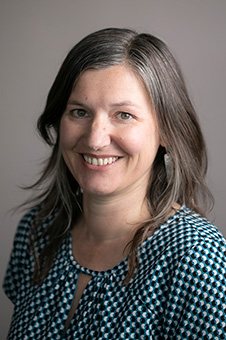 PhD candidate
PhD candidate
About
Nicki is a Registered Landscape Architect with experience working in local government. This helped her develop a strong interest in equity and an ability to work with diverse groups to achieve inclusive outcomes.
Prior to completing her Master of Landscape Architecture, she worked as a Chartered Accountant and commercial manager. This background has given Nicki a good grounding in the design of public space as well as an understanding of the commercial challenges involved.
Nicki is also a Trustee for Gather Foundation; a charitable trust focused on empowering children, young people and their wider communities in co-designing their outdoor environments.
Research interests
Design and planning, equity, addressing women's needs in the built environment, health and transport.
PhD topic
Title: Improving urban and transport planning and design outcomes for women from diverse backgrounds and circumstances
Supervisors: Angela Curl, Christina McKerchar, James Berghan
Background
Travel needs and patterns vary between genders. Factors such as caregiving and household responsibilities, the ability to work full-time, the gender pay gap, feelings of safety, and urban form influence how men and women travel differently. For example, women undertake the majority of unpaid work including looking after children and sick or elderly relatives, as well as undertaking other household tasks. This results in trip-chaining: short trips to multiple locations. City zoning rules separate key activities such as home, work and essential amenities, making trip-chaining difficult without a private vehicle. These travel patterns are further impacted by socio-economic conditions, ethnicity, cultural obligations, disabilities and level of education.
In spite of the significant volume of research that has been undertaken about women and transport over the last 40 years, it has had a relatively low impact on people, policies, systems and the built environment. Furthermore, a large proportion of research has studied women as a homogenous group, however, a woman who has disposable income and sole access to a private vehicle has very different travel challenges to a woman with low income who cannot afford a car. As such, more research is needed to understand how to better implement equitable planning outcomes for diverse women*.
*Women who are marginalised by factors such as ethnicity, cultural obligations, socio-economic status, employment status, level of education, age group, family responsibilities, health and disability status. Women includes all those who identify as female.Objectives
Through the use of semi-structured, in-depth interviews, the focus of my research is exploring the daily travel experiences of diverse women, as well as the experiences and knowledge of those who work in, or have influence on, the transport sector in regard to women's travel needs. This information will lead to new insights about the travel experiences for diverse women; the complexities of addressing these in policy and the built environment; and the potential mechanisms required to improve these experiences.
Publications
- Williams, N. (2020, December 2020). Gender sensitive design. New Zealand Institute of Landscape Architects Tuia Pito Ora.
- Williams, N. (2020, December 2020). How can city planning and design impact on gender equality? Planning Quarterly: The Journal of the New Zealand Planning Institute (219), 25–34.
- Williams, N. (2020, December 2020). How can transport planning and design impact on gender equality? Roundabout: Magazine of the Transportation Group New Zealand, (166), 12–14.
